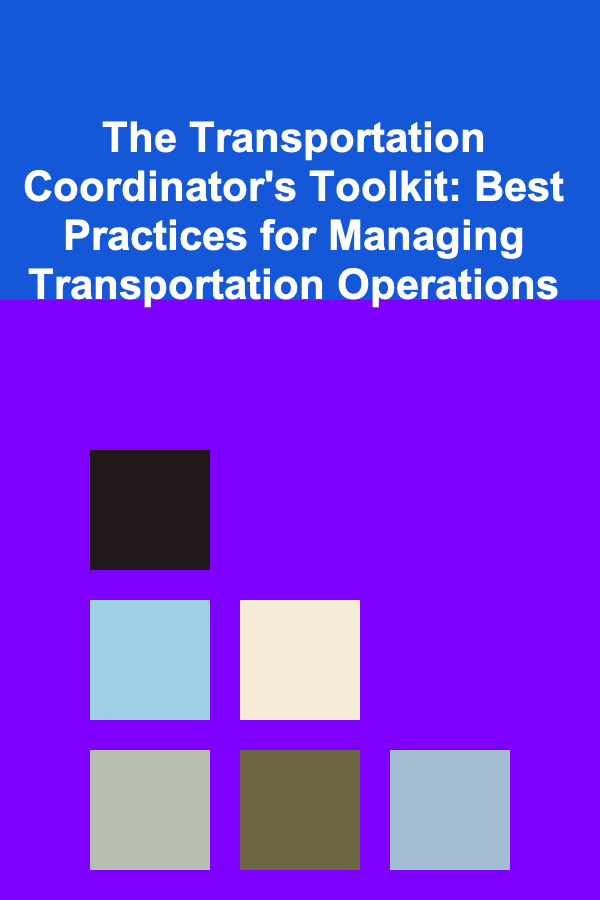
How To Reduce Your Debt Faster Through Frugality
ebook include PDF & Audio bundle (Micro Guide)
$12.99$7.99
Limited Time Offer! Order within the next:

Debt is a significant burden for many people, affecting not only financial well-being but also mental and emotional health. Whether it's credit card debt, student loans, mortgages, or any other form of debt, the pressure can be overwhelming. However, there are effective strategies to reduce debt faster, and one of the most powerful tools at your disposal is frugality. By adopting a frugal lifestyle, you can free up more money to pay down your debt, while simultaneously creating habits that can help you stay out of debt in the future.
In this article, we will explore how frugality can help you reduce your debt faster. We'll break down the steps, mindsets, and strategies that can make a significant impact on your financial situation. By understanding how to embrace frugality in a sustainable way, you can reduce debt while maintaining a balanced life.
Understanding the Debt Cycle
Before diving into the ways frugality can help you reduce debt, it's essential to understand the nature of debt itself. Many individuals accumulate debt due to living beyond their means, whether through overspending, taking out loans for items they can't afford, or using credit as a safety net during tough times.
The debt cycle can be incredibly difficult to break. Every month, you make payments toward the principal and interest of your debt, but due to high interest rates, a significant portion of your payments goes toward the interest rather than reducing the actual debt. This means you're not making as much progress as you'd like, leaving you stuck in a seemingly endless cycle of payments.
However, the good news is that there is a way out of this cycle, and that's through frugality. By making conscious choices to reduce unnecessary spending, redirecting those funds toward debt payments, and developing better financial habits, you can break free from the debt cycle faster.
The Role of Frugality in Debt Reduction
Frugality is the practice of being mindful of your spending, making intentional choices to reduce waste, and prioritizing your needs over wants. In the context of debt reduction, frugality helps you redirect your resources---whether it's your income, time, or energy---toward eliminating debt. By cutting back on unnecessary expenses, you can free up more money to put toward paying down your debt more quickly.
Frugality is not about depriving yourself, but rather about making intentional, mindful choices that help you meet your financial goals. The following are ways frugality can work to your advantage in reducing debt:
- Increased savings: By reducing your monthly expenses, you will have more money to save or put toward your debt. This allows you to pay down your balance faster.
- Lower living costs: Frugal habits reduce your cost of living, allowing you to live comfortably without overspending.
- Reduced reliance on credit: When you learn how to live within your means and control your spending, you reduce the temptation to use credit cards or loans for purchases.
- A shift in mindset: Embracing frugality can help you develop a mindset focused on long-term financial stability, which is key in breaking free from debt.
How to Start Living a More Frugal Lifestyle
Living frugally doesn't mean you have to completely deprive yourself of anything fun or enjoyable. It's about being mindful of where your money goes and making choices that align with your financial priorities. Here are some steps you can take to begin your frugal journey:
a. Create a Detailed Budget
One of the first steps toward frugality is creating a detailed budget. A budget is a roadmap for your finances, allowing you to see where your money is going and where you can cut back. The goal is to ensure that your income is allocated toward your most important needs and that excess funds are directed toward debt repayment and savings.
Start by tracking all of your income sources and expenses, categorizing them into needs (housing, utilities, groceries, insurance) and wants (eating out, entertainment, luxury items). Once you have a clear picture of your monthly cash flow, determine areas where you can reduce spending. By setting realistic limits for discretionary spending, you can free up money to put toward your debt.
b. Cut Back on Non-Essential Expenses
Once you've identified your spending patterns, the next step is cutting back on non-essential expenses. This is where frugality comes into play. You don't have to give up everything you enjoy, but small changes can make a big difference over time.
Here are some ideas for cutting back on non-essential expenses:
- Dining out: Instead of eating at restaurants frequently, consider cooking at home more often. You can make healthier meals at a fraction of the cost of dining out.
- Subscriptions: Cancel any unused or unnecessary subscriptions, whether it's streaming services, gym memberships, or magazines.
- Entertainment: Opt for low-cost or free entertainment, such as going for a walk, visiting museums on free days, or enjoying hobbies that don't require a lot of money.
- Clothing and shopping: Cut back on impulse shopping by avoiding malls or online shopping. Instead, focus on buying only what you truly need, and consider secondhand options when possible.
c. Avoid Lifestyle Inflation
As you progress in your career or receive raises, it's tempting to increase your standard of living. This is known as lifestyle inflation, and it can quickly eat up any additional income you may earn. Instead of upgrading your lifestyle, use any extra money to accelerate your debt repayment. By living below your means, you can achieve financial freedom much sooner.
d. Save on Utilities
Utility bills can quickly add up, but there are plenty of ways to cut back on energy costs without sacrificing comfort. Simple changes such as turning off lights when not in use, reducing heating or air conditioning usage, and unplugging devices when not needed can lower your monthly utility bills significantly.
Consider switching to energy-efficient appliances, installing LED bulbs, and using programmable thermostats to further reduce your energy consumption. These small steps can add up over time and leave you with more money to pay off your debt.
Make Debt Repayment a Priority
Once you've reduced your spending, it's time to prioritize paying off your debt. Rather than just making the minimum payments, you should aim to pay more than the minimum each month. This will reduce your principal balance faster, meaning you'll pay less interest over time.
Here are some strategies to make debt repayment a priority:
a. The Debt Avalanche Method
The debt avalanche method involves paying off the highest-interest debt first. This is a mathematical approach to debt repayment, as you save more money by reducing the debt with the highest interest rate. Once the highest-interest debt is paid off, you move on to the next highest, and so on, until all your debts are eliminated.
The debt avalanche method helps you minimize the amount of interest you pay over the life of the debt, making it the most efficient method for paying off debt.
b. The Debt Snowball Method
Alternatively, the debt snowball method focuses on paying off your smallest debt first, regardless of the interest rate. Once the smallest debt is paid off, you move on to the next smallest, and so on. While this method doesn't minimize interest payments as effectively as the avalanche method, it can provide a psychological boost as you see your debts disappearing one by one.
Both methods are valid, and the choice between the two depends on your personal preferences. If you prefer to tackle the most pressing financial issue first, the avalanche method may be the right choice. If you need motivation and momentum, the snowball method may be more appropriate.
c. Increase Your Income
In addition to reducing expenses, consider finding ways to increase your income. This could involve taking on a part-time job, freelancing, or selling unused items around your house. The extra income can be directly applied to your debt, helping you pay it off even faster.
d. Automate Your Payments
Setting up automatic payments can help ensure that you stay on track with your debt repayment goals. You won't have to worry about missing a payment, and it will prevent you from spending money that should be allocated to debt repayment. Many banks and debt-servicing companies offer automatic payment options, making it easy to prioritize your debt.
Creating Long-Term Financial Habits
Frugality is not just about reducing your debt in the short term; it's about developing sustainable financial habits that will set you up for long-term success. Here are some habits to adopt that will keep you debt-free in the future:
a. Build an Emergency Fund
One of the best ways to prevent future debt is to build an emergency fund. Having savings set aside for unexpected expenses---such as car repairs or medical bills---can prevent you from relying on credit cards or loans when life throws you a curveball.
Aim to save at least three to six months' worth of living expenses in an easily accessible account. Once your emergency fund is in place, you can focus on saving for other goals, such as retirement or homeownership.
b. Track Your Spending Regularly
Even after you've paid off your debt, it's essential to continue tracking your spending. Regularly reviewing your budget and adjusting it as necessary will help you maintain a frugal lifestyle and prevent you from falling back into old habits.
c. Save for the Future
In addition to paying off debt, make sure you're saving for the future. Whether it's retirement, a home down payment, or college savings for your children, having long-term financial goals can help you stay focused on living within your means and continuing to build wealth.
Conclusion
Reducing debt through frugality is not an overnight process, but it is an achievable goal with the right mindset and strategies. By cutting unnecessary expenses, prioritizing debt repayment, and adopting frugal habits, you can pay off your debt faster while creating a solid financial foundation for the future. Remember that frugality is about balance---finding ways to live comfortably while making intentional choices that align with your long-term financial goals.
The path to becoming debt-free may be challenging, but with commitment and perseverance, you can reduce your debt and achieve financial freedom. By embracing frugality, you're not only paying off your debt but also setting yourself up for financial stability and peace of mind in the years to come.
Reading More From Our Other Websites
- [Home Rental Property 101] How to Find Houses for Rent Near Public Transit for Easy Commuting
- [Home Maintenance 101] How to Keep Your Air Conditioning System in Top Shape
- [Home Party Planning 101] How to Throw a Memorable New Year's Eve Party at Home
- [Organization Tip 101] The Best Drip Irrigation System Kits for Home Gardeners
- [Mindful Eating Tip 101] Mindful Meal Prep: Crafting Plant-Based Dishes with Intention and Joy
- [Personal Financial Planning 101] How to Turn Your Skills and Hobbies Into Passive Income Ideas
- [Home Holiday Decoration 101] How to Incorporate Natural Elements into Your Holiday Decorations
- [Trail Running Tip 101] Trail Running Together: A Beginner's Guide for the Whole Family
- [Home Family Activity 101] How to Organize Backyard Sports Games for Family Fun
- [Personal Investment 101] How to Use Deep Learning to Develop High-Demand AI Products

How to Set Up a Library that Adapts as Your Collection Grows
Read More
The Transportation Coordinator's Toolkit: Best Practices for Managing Transportation Operations
Read More
How to Use Exposure Therapy for Phobias
Read More
How To Start a Community Garden
Read More10 Tips for Tracking Mortgage Interest in a Joint Account
Read More
10 Tips for a Themed Baby Shower Checklist: From Boho to Nautical
Read MoreOther Products

How to Set Up a Library that Adapts as Your Collection Grows
Read More
The Transportation Coordinator's Toolkit: Best Practices for Managing Transportation Operations
Read More
How to Use Exposure Therapy for Phobias
Read More
How To Start a Community Garden
Read More10 Tips for Tracking Mortgage Interest in a Joint Account
Read More